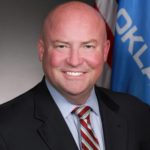By Oklahoma Institute for Child Advocacy CEO Joe Dorman 
Last week, we discussed the cuts to programs through HR 1 at the federal level and what those cuts would do to Supplemental Nutrition Assistance Program (SNAP) funds allocated to states. You can read the column at https://tinyurl.com/FTCVoice. The legislation passed by a single vote along a mostly party line vote and is in the hands of U.S. senators now, weighing if they will make changes.
This week let us examine the impact of the “Big Beautiful Bill” on Oklahoma’s state Medicaid program, SoonerCare, and other state programs that receive this heavily subsidized federal match to operate. Currently, one in four Oklahomans receive health insurance coverage through SoonerCare.
The Medicaid sections of HR 1 would:
- Impose work or community engagement activities for recipients to begin no later than December 31, 2026. Exemptions for this are: pregnant women, individuals under the age of 19 or over the age of 64, foster youth and former foster youth under the age of 26, members of a Tribal nation, and individuals considered “medically frail,” once verified as such.
- Reduce by 10% the Federal Medical Assistance Percentage (FMAP) for Medicaid expansion states that cover the cost of Medicaid for immigrants who are not “qualified aliens.” The FMAP is calculated based on each state’s average per capita income relative to the national average.
- Sunset FMAP increase for Medicaid expansion states on January 1, 2026. This is a 5% FMAP increase for 2 years for states, like Oklahoma, which opted for Medicaid expansion; 10 States have not yet opted for expansion. Oklahoma is one of three states which enshrined Medicaid expansion within our state Constitution.
- Reduce retroactive coverage for Medicaid and the Children’s Health Insurance Program (CHIP) to one month from three months beginning December 31, 2026.
- Prohibit Medicaid funding of gender-affirming care for all individuals.
- Require redetermination of eligibility every six months for expansion populations beginning on December 31, 2026.
- Freeze the current amount of provider taxes for states. These taxes are state-imposed assessments on healthcare providers to help fund Medicaid services. Many states use provider taxes to increase provider payments or to offset potential cuts.
- Require states to impose co-pays on Medicaid Expansion adults with incomes over 100 percent of the federal poverty level (FPL). This cost-sharing may not exceed $35 per service. Exempted services include primary care services, mental health care services, or substance use disorder services.
- Prohibit federal funding for certain entities providing abortion services.
- Increase the state share of Medicaid expansion from 10% to 20% for states that use state-only funds to provide health coverage to undocumented immigrants, placing a greater burden on state budgets should states choose to continue this service.
It is estimated that approximately $880 billion will be reduced over the next decade through the Medicaid provisions of the legislation, with much of that shifted to states if they want to continue providing services at current levels. The Kaiser Family Foundation estimates that 174,000 Oklahomans will lose SoonerCare benefits under this proposal, with uninsured rates increasing by roughly 95,000 or 2 % of our population.
Rural hospitals face the greatest risk under this proposal. According to the Center of Health Care Quality and Payment Reform “Sixty-seven percent of rural facilities operate with losses on services, and 59% are at risk of closing.“ The center’s report states that most at-risk hospitals are in isolated communities where closures would force residents to travel long distances for emergency and inpatient care. Nine rural hospitals have closed since 2005 in Oklahoma.
If you have thoughts on parts or all of this legislation, please reach out to our federal delegation for your input on what should happen. You can find their contact information at https://tinyurl.com/OKCongDel.


